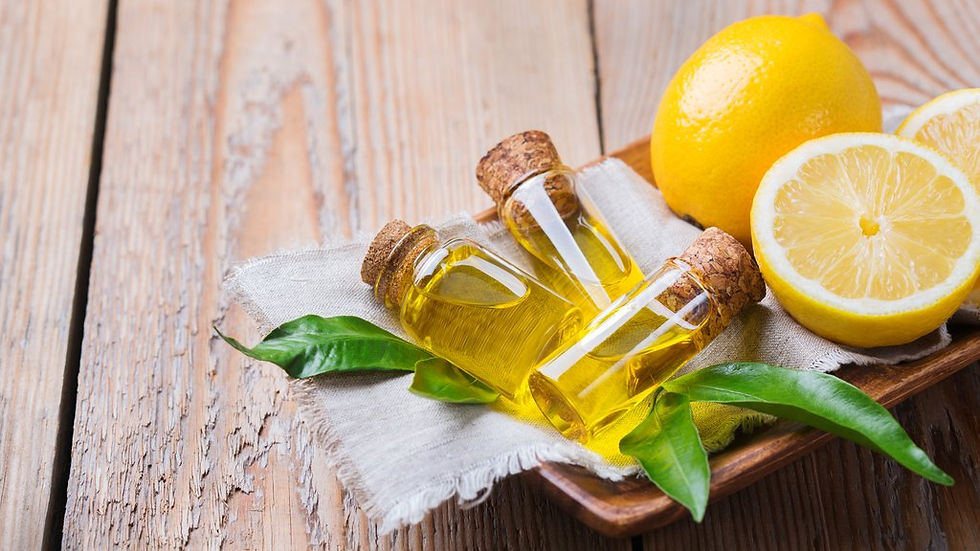Le Lores | Harmful Chemicals In Cosmetics You Might Not Know About
- Slater Katz

- Nov 21, 2018
- 3 min read
Updated: Feb 22, 2019

We have a crisis on our hands. A cosmetic crisis. What we put on our bodies has as big an impact as what we eat, yet our cosmetic products are filled with filth. For example, according to U.S. researchers, industrial chemicals make up one in eight of the 82,000 ingredients used in cosmetic products. This includes carcinogens, pesticides, reproductive toxins, and hormone disruptors. Many products also include plasticizers (chemicals that keep concrete soft - wait, what?), degreasers (used to get grime off auto parts - ick!), and surfactants (they reduce surface tension in water, like in paint and inks - just, no...). Take a second to think what that does to your skin and the environment.
You deserve to be informed about what you put on your skin and the potential health impact it may cause. That’s why we rounded up five of the worst chemicals found in your everyday cosmetic products. Let’s take a look…
1. Sodium lauryl sulfate (SLS) / Sodium laureth sulfate (SLES)
Found in over 90 percent of personal care and cleaning products (think shampoo, body wash, foundation, mouthwash, toothpaste), SLS is known to cause or contribute to skin irritation, canker sores, acne, and skin, lung, and eye irritations. What makes SLS particularly troubling is its potential to combine with other chemicals to form nitrosamines, a carcinogen. This combination breeds issues like kidney and respiratory damage. Not exactly desirable… Our all-natural Olive & Coconut Oil Body Wash is though.
2. Butylated Hydroxyanisole (BHA)
Smelling good can come at a cost. Commonly found in perfume and exfoliants, the National Toxicology Program classifies BHA as “reasonably anticipated to be a human carcinogen.” The European Union has already deemed it unsafe in fragrance. That’s because BHA can cause skin pigmentation. Animal studies also showed BHA produces liver damage, causes stomach cancers, and interferes with normal reproductive system development and thyroid hormone levels. Not worth the scent, is it?
3. Triclosan and Triclocarban
Thought your toothpaste was clean? Sorry to disappoint - it’s riddled with triclosan. Also used in deodorant and antibacterial soap, triclosan (liquid products) and triclocarban (soap bars) link to hormonal disruptions, bacterial resistance, impaired muscle function, impaired immune function, and increased allergies. Get this - even the FDA agrees triclosan has no health benefit to humans and, in 2013, ruled that manufacturers using it must demonstrate there were no long-term detrimental effects. Instead, try our all-natural French Modern Soap.
4. Aminophenol, Diaminobenzene, Phenylenediamine (Coal Tar)
Any hairdressers out there? Listen up. Hair dye and shampoo aren’t as safe as you think. They’re filled with coal tar, a byproduct of coal pressing (no joke). According to the National Toxicology Program and the International Agency for Research on Cancer, it’s a known human carcinogen. Thankfully, Europe has banned many of these ingredients in hair dye. On the other hand, while the FDA sanctions coal tar in specialty products like dandruff and psoriasis shampoo, the long-term safety of these products hasn’t been demonstrated.
5. Parabens
It’s found a home in your makeup, moisturizer, shaving gel, shampoo, and spray tan. Mimicking estrogen, studies link parabens to breast cancer, skin cancer, and decreased sperm count. The FDA acknowledges these studies but still hasn’t ruled parabens as harmful (really?). According to the European Commission’s Scientific Committee on Consumer Products, longer chain parabens and their branched counterparts may disrupt the endocrine system and cause reproductive and developmental disorders. Protect yourself and look out for ingredients reading “-paraben.”
We hope this guide empowers you to wash, brush, and spray more safely. And if you’re ever at a loss for where to find all-natural, organic, and, most importantly, safe cosmetic products, visit us at lelores.com. Made with legendary French expertise, all our products are made using only plant-based, Certified Organic grown ingredients that are good for you and the environment.




Comments